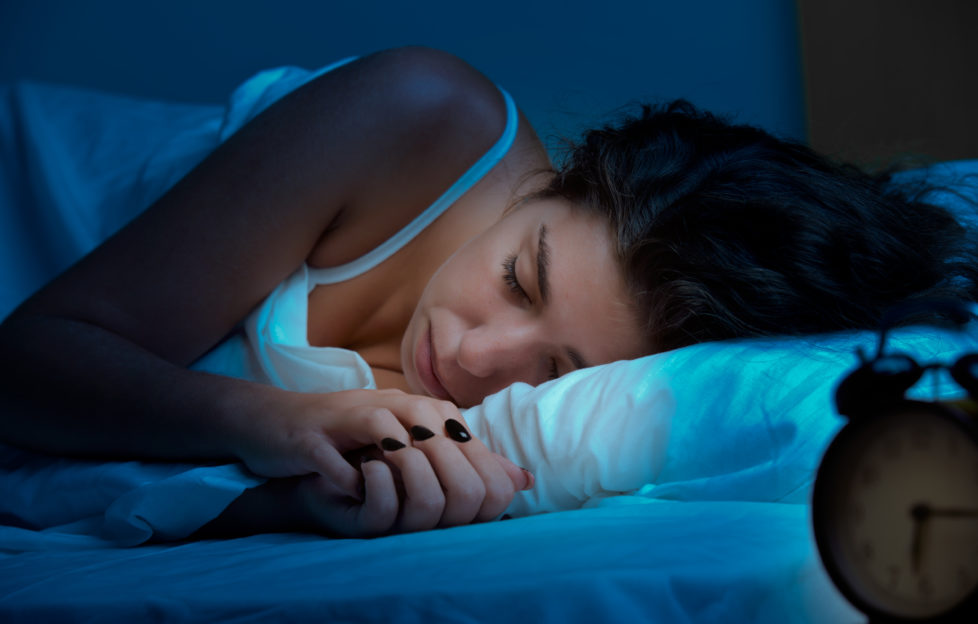 Shutterstock / ruigsantos©
Shutterstock / ruigsantos©Sleep is incredibly important to how well we cope with everyday life.
We spend a third of lives doing it. And yet we don’t always pay enough attention to why we need it!
Why do we need it?
It is a basic and fundamental human requirement, and has restorative functions. As we sleep, tissue grows and repairs itself and the immune system is strengthened.
The brain also repairs itself during sleep, and researchers believe it is critical to healthy brain function.
In fact, researchers also believe the brain performs actions vital to learning and memory during sleep. It also affects the levels of hormones and other important chemicals circulating in your body. Getting too little sleep disrupts all of that.
“People go to huge amounts of time and expense to eat well and exercise regularly, but without a good night’s sleep all that effort will be in vain,” Lisa Artis, Deputy CEO of The Sleep Charity, says.
“Sleep doesn’t just make us feel better, it can improve our health by decreasing the risk of heart attacks, diabetes, strokes and it helps us fight off minor ailments, deal better with depression and even tackle weight problems.”

Lisa Artis. Picture courtesy of The Sleep Charity.
It’s important to remember that quality is important, not just the quantity.
The best way to determine if you’re getting enough is to look at how you feel the next day.
Being tired doesn’t mean you’ve not had enough sleep. However, if you feel exhausted and unable to function then chances are you are not sleeping well.
10 Ways To Help Achieve Better Sleep
To ensure you experience good sleep it’s essential to follow good lifestyle habits and to eliminate the factors that are causing you disturbed sleep.
Here are the charity’ definitive tips:
Keep a regular sleep routine
Keeping a regular schedule helps the body’s sleep system stay in harmony, and promotes feelings of drowsiness when your body is ready for sleep.
Get out into natural light
Natural light (even on cloudy days), helps reset our internal body clock.
It helps us get over feeling groggy when we have just woken up, and makes us more alert. Get out into the natural light as soon as you can after waking up, and preferably around the same time every day.

Shutterstock.
Exercise regularly
Exercise promotes the quantity and quality of your sleep, making it deeper and more refreshing.
However, a few studies have shown that exercising too close to bedtime can prevent sleep, so we suggest leaving a window of at least two hours before bedtime without exercise.
Avoid stimulants eight hours before bedtime
Although there are significant individual differences in how caffeine affects each of us, give yourself enough time between your last caffeine intake and bed time to make sure that it does not interfere with your ability to get off to sleep.
Don’t go to bed full, hungry or thirsty
Eating at regular times helps strengthen our internal body clock.
However, eating a heavy meal before bedtime can make it challenging to drift off at night. Drinking lots of liquid before bed will also increase the chances that we have to go to the bathroom, too.
Conversely, being hungry or thirsty at night can increase the chances of waking up. A balance should be struck between being sated but not full up before we go to bed.
Be screen savvy
Using electronic screens just before bed and in the bedroom can keep us awake for longer. The blue light from these devices has the capacity to prevent us from producing the hormones that make us sleepy.
Importantly, it is not just the light that can affect us, but most activities that we use our devices for can keep us awake and alert.
Don’t use alcohol to sleep
Although alcohol is a sedative, it can have a significant impact on the quality and quantity of your sleep.
Our sleep tends to become fragile and light when we have a lot of alcohol in the evening, and can lead to lots of awakenings in the latter part of the night and feelings of being unrefreshed during the day.
Avoid nicotine before bed
Nicotine is a short-acting stimulant that can keep you awake, and so should be avoided in the later part of the evening and during the night if you happen to wake up.
Keep your bedroom cool, dark and quiet
Heat, light and noise can impact on our ability to get off to sleep and increase the chances that we wake in the night.
Making sure the bedroom is cool, dark and quiet can help, as can sleeping on a comfortable, supportive bed.
Hide the clock
It is common to watch the clock when we are awake at night.
For some of us, this can increase our anxiety levels and further prevent us from being able to fall asleep.
It is not necessary to remove the clock altogether, as many people rely upon their alarm clocks to get them up in the morning.
However, having the clock face out of sight will help reduce any sleep anxiety.
For more information, click here to visit The Sleep Charity website.
For more health and wellbeing tips from “The People’s Friend”, click here.




